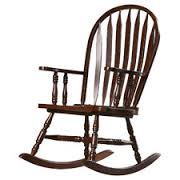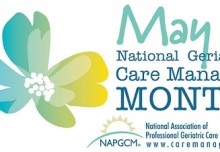 The next time anyone tells your older loved one to take it easy, be sure to clarify that taking it easy does not mean just sitting around. Medical research has begun to document that too much sedentary time is bad for one’s health. It leads to obesity, elevated blood pressure, elevated blood sugar and metabolic syndrome, and all of these lead to cardiovascular disease and even cancer.
The next time anyone tells your older loved one to take it easy, be sure to clarify that taking it easy does not mean just sitting around. Medical research has begun to document that too much sedentary time is bad for one’s health. It leads to obesity, elevated blood pressure, elevated blood sugar and metabolic syndrome, and all of these lead to cardiovascular disease and even cancer.
Researchers compared the health of adults who spent less than two hours a day in front of a television or other screen format versus those who spent four hours or more as the proverbial couch potatoes. Those who spent more screen time had dramatically elevated risk for cardiovascular events like heart attacks as well as death from any cause. Screen time is simply unhealthy. It may be no surprise why some are calling sitting the new smoking, likening it to the health risk of cigarettes.
For any of you who are caregivers to an older loved one, this health risk is particularly worrisome, because older adults risk being isolated as they age. The 2010 U.S. Census found that 28% of people 65 years of age and older, or about 11 million people, lived alone. Granted, living alone does not automatically mean a person will be isolated, but it makes it easier to slip into that rut. Older adults outlive their friends with whom they have socialized in the past, and they may be less able to get out and walk or drive themselves to social events. They may resign themselves to just sitting and taking in the only seemingly accessible entertainment available – the screen. In fairness, we cannot tie all of this to television; any prolonged sedentary activities such as reading, sewing or knitting also can be a risk to the sitter.
The same researchers who did the study of the health consequences of sitting offered some advice you can pass along to your older loved one:
- Encourage standing over sitting for small tasks like a phone call or even lunch.
- Use a higher counter so paying the bills can be a standing task.
- For social visits, consider walking and talking rather than sitting and talking.
And there are a lot more benefits; people who sit less are less inclined to depression, cognitive decline and dementia. Your more active, older loved one also will be less likely to be a target of elder abuse and less likely to need long term care. So, a lot less sitting and a lot more of everything else.
Charlotte Bishop is a Geriatric Care Manager and founder of Creative Care Management, certified professionals who are geriatric advocates, resources, counselors and friends to older adults and their families in metropolitan Chicago. Please email your questions to info@creativecaremanagement.com.







